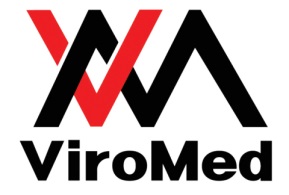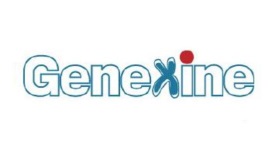Korean pharmaceutical companies are catching up in the immunotherapy market, deemed one of the most popular fields in medicine, which has been long dominated by multinational drug companies.
According to leading consulting group Evaluate Pharma, global prescription drug sales will hit $1.06 trillion by 2022, with most of the growth coming from new immunotherapies such as Opdivo and Keytruda.
■Related: How do clinical trials affect stock prices of pharmaceutical giants?
The global oncology market will remain the largest therapy areas in sales with the compound average growth rate of 12.7 percent from 2016 to 2022, according to the report.
The domestic pharmaceutical industry is expected to grow around 4 percent until 2021, totaling $16.2 billion, according to a report published by IMS Health. The report estimates anticancer drugs and immunotherapies will record the highest growth of 8.5 percent a year.
“Korean pharmaceutical industry’s 4.4 percent average annual growth rate is almost twice that of other countries (excluding the U.S.) of 2.1 percent. The ‘L Class,’ which includes anti-cancer drugs and immunotherapies and diabetes drugs, will grow exponentially,” said Huh Kyung-hwa, general manager of IMS Health.
Korean pharmaceutical companies have begun to see significant progress in the field led by foreign multinationals such as Roche, Celgene, Novartis, Bristol-Myers Squibb and Merck & Co.
Among Korean companies, Green Cross Cell녹십자셀, ViroMed바이로메드, SillaJen신라젠, and Genexine제넥신 have gained global recognition in developing chimeric antigen receptor-T (CAR-T) and natural-killer (NK) cell therapies either independently or with multinational pharmaceutical companies.
1. Green Cross Cell
Green Cross Cell, a subsidiary of Korean pharmaceutical Green Cross, specializes in creating customized, next-generation cancer immunotherapy. The company has seen remarkable success with its natural killer (NK) cell therapy which destroys cancer cells in the body.
Green Cross Cell’s MG4101 for liver cancer and malignant lymphoma phase 2 is the world’s leading NK cell therapy, according to a Hi Securities & Investment report.

The company announced in January that it won the Ministry of Food and Drug Safety’s approval to conduct the phase 2 clinical trial of MG4101 in 60 patients with hepatocellular carcinoma undergoing transcatheter arterial chemoembolization (TACE).
MG4101 phase 1 clinical trial results showed a 50 percent response rate while reaching its safety endpoints. Myeloid-derived suppressor cells (MDSC) also decreased significantly, which are potent inhibitors of immune cell function that accumulate in cancer patients.
The company also gained patents both domestically and abroad for cord blood technology and patents in February for technology that enhances expression of NK cells.
2. ViroMed
ViroMed, a Korean biotech company, headquartered in Seoul with U.S. branches in Atlanta and San Francisco, has also made significant progress in CAR-T development. The company develops DNA and protein-based therapeutics for life-threatening diseases.

The company’s flagship product VM202 targets four indications – all in clinical stage development – with phase 3 studies currently underway.
ViroMed signed a $1 million technology export contract with U.S. bluebird bio in 2015 to transfer its technology platform – anti-TAG72 CAR-T – that targets tumor-associated glycoprotein-72 in patients with ovarian cancer.
The two companies entered into an exclusive license agreement with research and commercialized CAR-T cell therapies using ViroMed’s proprietary humanized antibody to an undisclosed cancer target for solid tumors.
3. Genexine
Genexine, a Korean company, pioneering next-generation bio therapeutics for cancer patients, is expected to see positive results in the latter half of the year with its HPV therapeutic DNA vaccine GX-188E.
Clinical trials will use GX-188E in combination with Merck & Co’s (known as MSD outside the U.S. and Canada) anti-PD-1 therapy Keytruda in Phase 1b-2 clinical trials. The Ministry of Food and Drug Safety approved clinical trials to be conducted in June.

Experts estimate GX-1883, which works to prevent uterine cancer occurrence and recurrence, will achieve synergy with Keytruda in upcoming clinical trials, which have shown 12.5 percent of Keytruda’s monotherapy’s overall response rate (ORR).
Genexine’s GX-H9 independent phase 2a clinical trials has also garnered positive attention, showing a 50 percent ORR in uterine cervical cancer patients with extensive lesions and a 86 percent ORR in those with small lesions. When considering all patients, the ORR stood at 59.4 percent. GX-H9 is currently in multinational phase 2 trials, developed for both adult and pediatric growth hormone deficiencies.
4. SillaJen
SillaJen, a global leader in oncolytic immunotherapeutics headquartered in Busan, Korea, is also making progress, having partnered with New York- based Regeneron to test combination therapies in May.
The phase 1b clinical trial will evaluate SillaJen’s independently developed oncolytic virus agent Pexa-Vec (JX-594) and Regeneron’s PD-1 inhibitor REGN2810 for combination treatment in kidney cancer.
According to the company, “Pexa-Vec was the first engineered oncolytic virus with demonstrated intravenous delivery to tumors and induction of cancer targeting antibodies.”

SillaJen’s Pexa-Vec deletes thymidine kinase (TK) genes, thereby targeting common genetic defects in cancer cells. Pexa-Vec is also created to express the GM-CSF protein which “complements the cancer cell lysis of the product candidate, leading to a cascade of events resulting in tumor necrosis, tumor vasculature shutdown and sustained an anti-tumoral immune attack,” according to the company.
Pexa-Vec showed nearly double the response rate of Amgen’s Imlygic and other immunostimulants. Experts are highly anticipating the clinical results of SillaJen’s combination therapy to start at the end of this year.
REGN2810, a PD-1 inhibitor series immunoglobulin blocker, was developed through a cooperative 1 billion won ($876,000 million) investment by Sanofi and Regeneron.
Pexa-Vec will also be used with Astra Zeneca’s immunoglobulin inhibitor for combination therapy clinical trials to a gain colon cancer indication.
Industry insiders expect the combination therapy clinical trial to begin in the latter half of this year. The combination therapy is likely to obtain various indications with high scalability compared to Imlygic if the test is successful, according to the report.
The company also announced last month that China approved the start of the phase 3 clinical trials of its Pexa-Vec for liver cancer.
Immuno-oncology market grows despite hefty costs
Notwithstanding the progress made by pharmaceutical companies, experts are criticizing the economic burden of anticancer drugs in Korea.
According to the Hi Investment & Securities report, the average Korean patients pay around 100 million won a year for immunotherapies.
In the case of Bristol-Myers Squibb’s Yervoy, the treatment price is around 30 million won, which totals to about 120 million won for three months. Novartis’ CAR-T cell therapy CTL019, although not yet public, is expected to cost around 300 million won per round.
Experts also have pointed out the limitations of immunotherapies saying that they cannot be used independently as monotherapies. Although combination therapy studies are actively underway, concerns over side effects have loomed.
“Although analgesic drugs have a higher overall response rate (ORR) in concomitant therapy, the combination therapy can increase the number of side effects rather than increase the ORR,” the report said.
Despite lingering concerns, the immunotherapy market sees no signs of slowing down, grew to $75.3 billion last year and an average growth rate of 9 to 12 percent is expected until 2021, according to the brokerage’s report.

